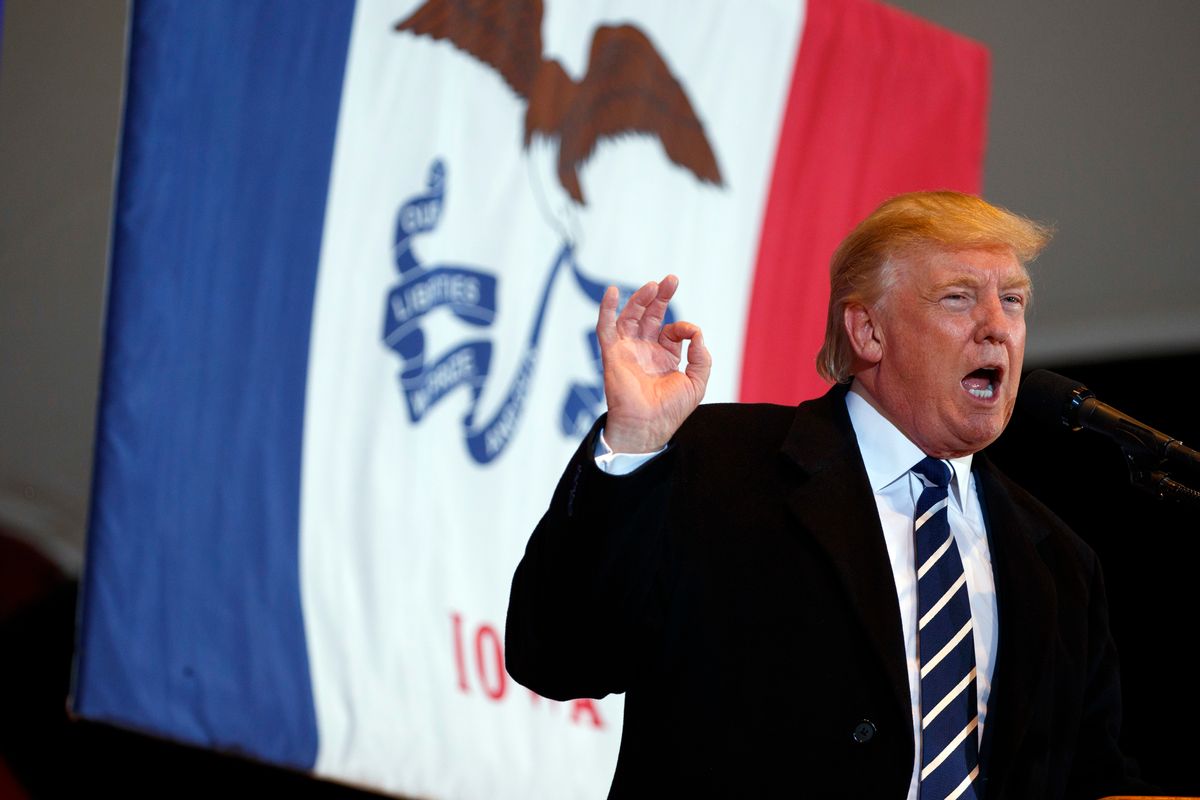Donald Trump likes to boast about being a charitable man, but the facts do not match his bragging.
According to a report by The Washington Post on Saturday, only $7.8 million in charitable giving has been confirmed as coming from Trump's finances since the 1980s.
What's more, after calling more than 420 charities with connections to Trump, The Post found that the only personal gift from Trump since 2008 was a donation of less than $10,000 to the Police Athletic League of New York City in 2009.
The Post described a time when Trump crashed a benefit for a Manhattan charity intended to raise money for a nursery-school serving children with AIDS. Trump hadn't donated a cent to their foundation. As the Post reported:
“Nobody knew he was coming,” said Abigail Disney, another donor sitting on the dais. “There’s this kind of ruckus at the door, and I don’t know what was going on, and in comes Donald Trump. [He] just gets up on the podium and sits down.”
. . .
So they warbled into the first song on the program, “This Little Light of Mine,” alongside Trump and a chorus of children — with a photographer snapping photos, and Trump looking for all the world like an honored donor to the cause.
Afterward, Disney and [charity director Gretchen] Buchenholz recalled, Trump left without offering an explanation. Or a donation. [Donor Steven] Fisher was stuck in the audience. The charity spent months trying to repair its relationship with him.
Or, the time that Trump was principal for a day at a Bronx public school that was $5,000 shy of a fund-raising goal to send some students to a chess tournament. Trump brough a fake million-dollar bill, gave them $200 in real life, and drove away in a limousine.
This isn't the first time that Trump's claims of charitableness have been called into question. Back in June, the paper ran a report covering many of the facts that were reiterated over the weekend, but went into more detail contrasting Trump's promises of philanthropy with the reality. These included incidents stretching back into the 1980s, when Trump variously promised that the profits from his book "The Art of the Deal" and board game Trump: The Game would both go directly to charities. He even characterized the latter product as him simply working as an "agent of charities."
All of the profits from the book and game went to, and stayed with, Trump himself.
Despite these miserly figures, Trump has repeatedly touted himself as a generous philanthropist. He has promised to donate the salary he earned from "The Apprentice," make personal donations to the charities chosen by contestants on "Celebrity Apprentice," provide $250,000 to help Israeli soldiers and veterans, and give away the proceeds from Trump University, which is currently under trial for allegedly defrauding its customers.
While it is impossible to determine whether Trump has donated more — because he refuses to release his tax returns — it wouldn't be difficult for him to provide financial documents confirming various contributions if he did in fact make them.
Perhaps Trump's most charitable period was from 1987 to 1991, when he founded the Donald J. Trump Foundation. As The Post discovered, though, 92 percent of the foundation's money went to "charities tied to Trump’s life: society galas, his high school, his college, a foundation for indigent real estate brokers. The School of American Ballet, where Ivanka Trump studied from 1989 to 1991, got $16,750."
Of the 8 percent that didn't enhance Trump's family or social life, $101,000 went to veterans, $26,000 to the homeless, $12,450 to AIDS charities, and $4,250 to multiple-sclerosis research, the report found.



Shares